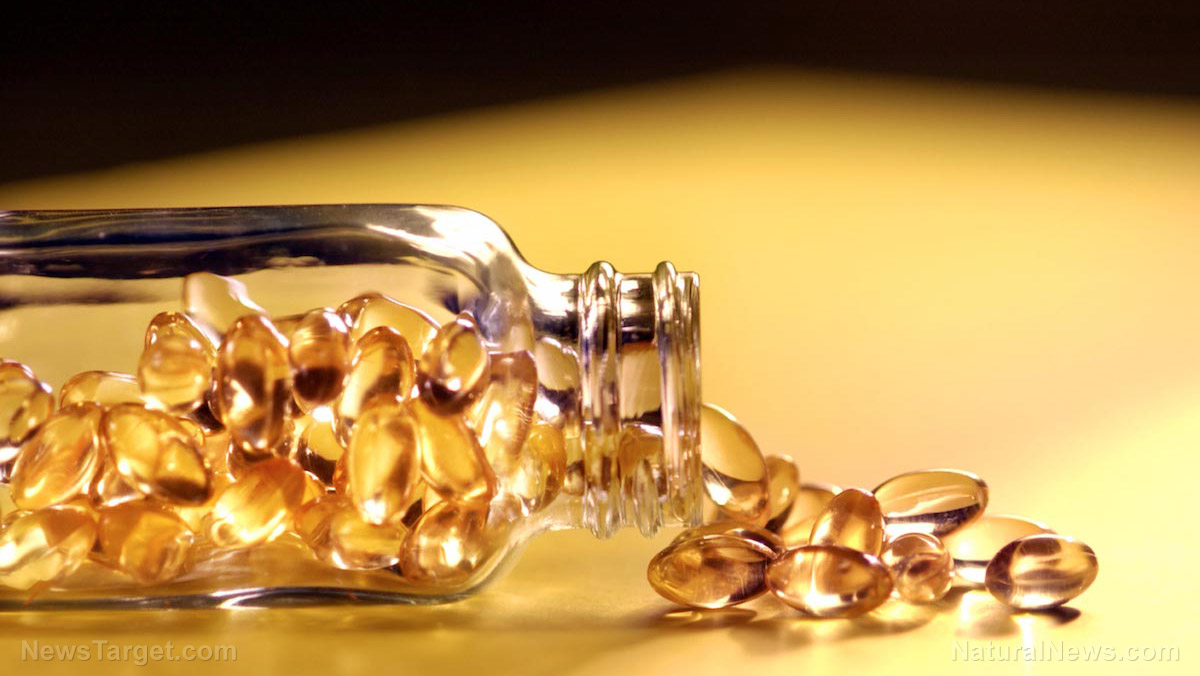High omega-3 in the blood may be linked to lower Wuhan coronavirus mortality
05/31/2022 / By Ramon Tomey

A recent study has found that higher levels of omega-3 in the blood may lower the risk of deaths caused by COVID-19. The study published in Prostaglandins, Leukotrienes, and Essential Fatty Acids examined the eicosapentaenoic acid (EPA) and docosahexaenoic acid (DHA) levels in blood samples of 100 patients hospitalized for COVID-19. Fourteen of the 100 patients whose blood samples were analyzed died of the illness, the study authors remarked.
The researchers looked at the Omega-3 Index (O3I) – the EPA and DHA levels in the red blood cell membrane – of the patients’ blood samples. They grouped the patients afterward into quartiles based on O3I, with 25 percent of the patients in each quartile. The highest quartile reported one fatality, while the lower three quartiles reported a total of 13 fatalities.
Age- and sex-adjusted regression analyses further unveiled that patients with lower omega-3 levels were about four times more likely to die of COVID-19 than patients with higher amounts of omega-3 in their blood.
The researchers noted that males predominantly made up the study participants, and the average age of the volunteers was more than 70 years old. All the patients were admitted between April 2020 and July 2020, during the pandemic’s early stages. Furthermore, they remarked that 38 percent of study volunteers were under a do not resuscitate (DNR) order at some point during their hospitalization.
Lead study author Dr. Arash Asher said in a statement that the pilot study “strongly suggests that these nutritionally available marine fatty acids may help reduce risk for adverse outcomes in COVID-19 patients.” Multiple papers elaborating on the anti-inflammatory effects of EPA and DHA bolster these fatty acids’ potential to minimize the negative effect of COVID-19, he added. But Asher clarified that “larger studies are clearly needed” to confirm the pilot study’s findings.
Omega-3 fatty acids come in three main forms. Alpha-linoleic acid (ALA) usually comes from plant-based sources. Some foods that are good sources of this omega-3 fatty acid include flax seeds, chia seeds, walnuts and leafy greens. Meanwhile, fatty fishes and their oils are rich dietary sources of EPA and DHA. Omega-3 from plant-based foods is known to positively impact cardiovascular health, while omega-3 from fatty and oily fishes have been shown to be effective in keeping the brain healthy.
The study authors also noted vitamin D’s potential impact against COVID-19
Asher and his colleagues also noted the potential impact of vitamin D against Wuhan coronavirus infections in their paper. They remarked that “some evidence” has shown that the anti-inflammatory nutrient may also reduce the risk of COVID-19 fatality, alongside omega-3.
An April 2020 report by The Daily Mail tackled the “sunshine vitamin” and how it can address the effects of COVID-19. Clinical professor of respiratory infection and immunity Adrian Martineau said vitamin D exhibits anti-inflammatory action, especially when given at higher doses. The Queen Mary University of London professor elaborated: “It is the overactive inflammatory response in patients with COVID-19 that seems to be implicated with poor prognosis. The idea is to see if it can reduce this response.” (Related: Scientists link vitamin D deficiencies to higher risk of coronavirus infection and severe complications.)
Martineau also mentioned that previous trials had looked at vitamin D as a possible treatment for tuberculosis. He explained the nutrient’s pathogen-fighting property: “When vitamin D is made in the skin, it gets converted in the liver to a form that circulates around the body. This creates a natural antibiotic-like substance in the lining of the airway that can bash viruses and bacteria, killing them.”
The study led by Asher and his colleagues ultimately noted: “While vaccines may soon slow the spread [of the Wuhan coronavirus] and drugs may help diminish the adverse effects of infection, preventative measures – ideally ones that are cheap, safe and readily accessed by large numbers of people – that modulate the most severe disease outcomes are desperately needed.” (Related: Vitamin D could have prevented 90 percent of coronavirus deaths.)
Visit Omega3.news to read more about the benefits of this nutrient against COVID-19.
Sources include:
Submit a correction >>
Tagged Under:
This article may contain statements that reflect the opinion of the author
RECENT NEWS & ARTICLES
COPYRIGHT © 2017 SUPERFOODS NEWS




















